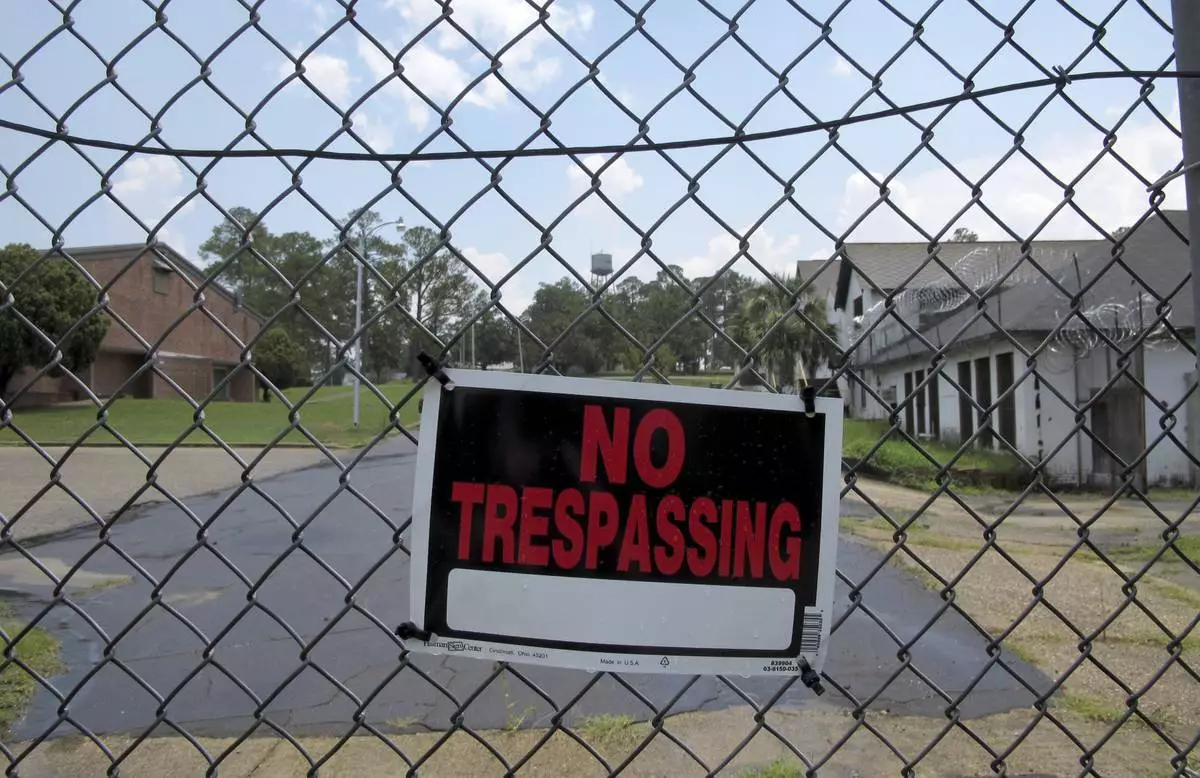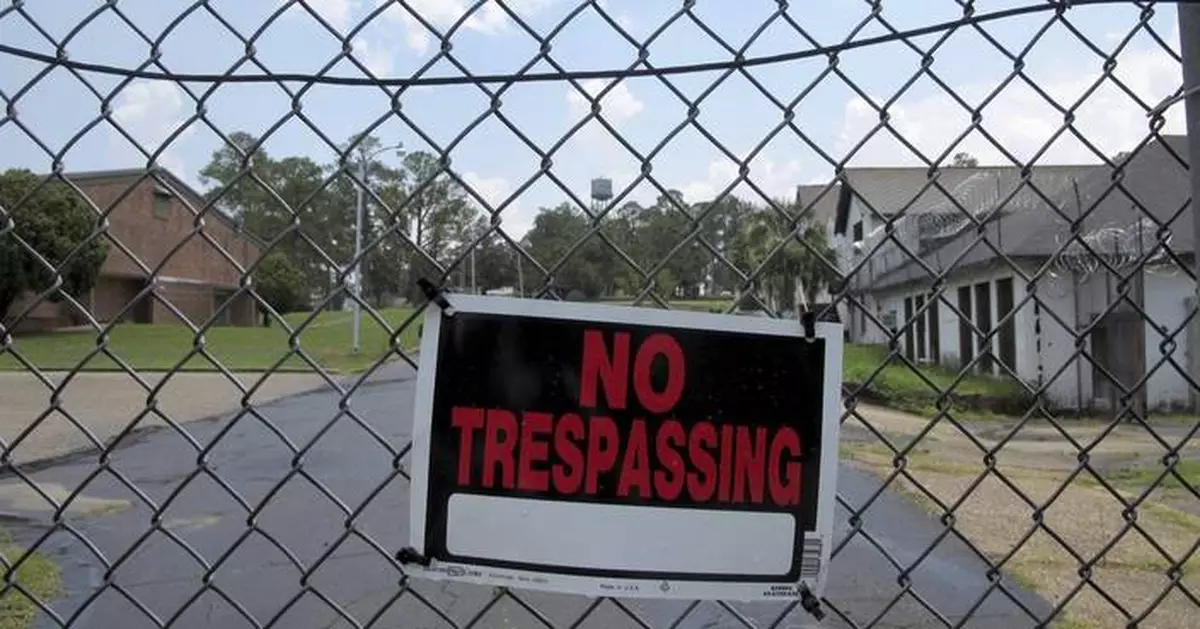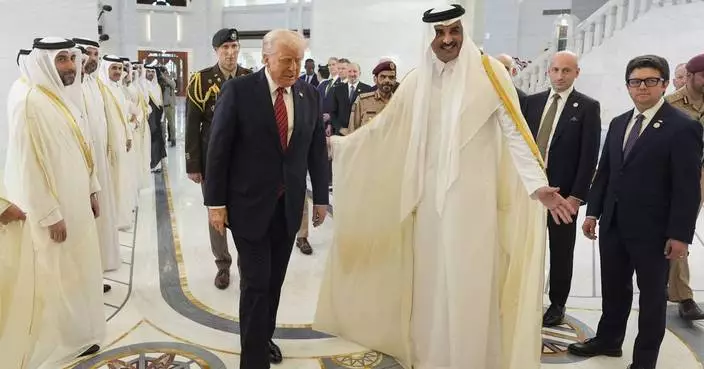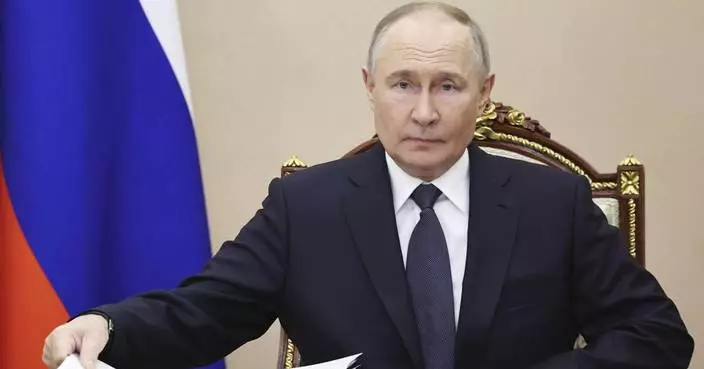Hundreds of people who say they suffered physical or sexual abuse at two state-run reform schools in Florida are in line to receive tens of thousands of dollars in restitution from the state, after Florida lawmakers formally apologized for the horrors they endured as children more than 50 years ago.
At its peak in the Jim Crow 1960s, 500 boys were housed at what is now known as the Dozier School for Boys, most of them for minor offenses such as petty theft, truancy or running away from home. Orphaned and abandoned children were also sent to the school, which was open for more than a century.
In recent years, hundreds of men have come forward to recount brutal beatings, sexual assaults, deaths and disappearances at the notorious school in the panhandle town of Marianna. Nearly 100 boys died between 1900 and 1973 at Dozier, some of them from gunshot wounds or blunt force trauma. Some of the boys' bodies were shipped back home. Others were buried in unmarked graves that researchers only recently uncovered.
Ahead of a Dec. 31 deadline, the state of Florida received more than 800 applications for restitution from people held at the Dozier school and its sister school in Okeechobee, Fla., attesting to the mental, physical and sexual abuse they endured at the hands of school personnel. Last year, state lawmakers allocated $20 million to be equally divided among the schools’ surviving victims.
Bryant Middleton was among those who spoke publicly in 2017, when lawmakers formally acknowledged the abuse. Middleton recalled being beaten six times for infractions that included eating blackberries off a fence and mispronouncing a teacher’s name after being sent to Dozier between 1959 and 1961.
“I’ve seen a lot in my lifetime. A lot of brutality, a lot of horror, a lot of death,” said Middleton, who served more than 20 years in the Army, including combat in Vietnam. “I would rather be sent back into the jungles of Vietnam than to spend one single day at the Florida School for Boys.”
Allegations of abuse have hung over the Dozier school since soon after it opened in 1900, with reports of children being chained to the walls in irons. When then-Gov. Claude Kirk visited in 1968, he found the institution in disrepair with leaky ceilings, holes in walls, no heating for the winters and buckets used as toilets.
“If one of your kids were kept in such circumstances,” Kirk said then, “you’d be up there with rifles.”
Florida officials closed Dozier in 2011, following state and federal investigations and news reports documenting the abuses.
As the men who were victimized at the schools wait for restitution, their resilience is being honored in the new film “Nickel Boys”, which was adapted from Colson Whitehead's Pulitzer Prize-winning novel. Whitehead has said Dozier served as the model for the book, which he hopes raises awareness “so that the victims and their stories are not forgotten.”

FILE - In this July 13, 2011 photo, the buildings that housed the Dozier School for Boys. (AP Photo/Brendan Farrington, File)
NEW YORK (AP) — The R&B singer Cassie has spent hours under cross-examination following two days of testimony recounting tumultuous details of life with her ex-boyfriend, Sean “Diddy” Combs.
Prosecutors allege Combs used his fame and fortune to orchestrate an empire of exploitation, coercing women into abusive sex parties. His lawyers argue that all the sexual acts were consensual, and although he could be violent, he never veered into sex trafficking and racketeering. Combs has pleaded not guilty to racketeering conspiracy; sex trafficking by force, fraud or coercion; and transportation to engage in prostitution.
Defense Attorney Anna Estevao has led Thursday's questioning, making Cassie read her sexually explicit texts out loud for the jury. Estevao suggested that it was Cassie who ended Combs career by making his sexual behavior public through a lawsuit — not the other way around.
Here's the Latest:
Combs’ former girlfriend powered through the morning’s cross-examination, despite her advanced pregnancy.
The questioning took on such a friendly tone that occasionally it seemed like two girlfriends chatting — under the watchful eyes of the judge, 12 jurors, six alternates, a dozen lawyers, a packed courtroom audience and Combs — who has remained observant throughout.
Now she’s back, and seems more subdued, as Estevao shows her text messages in which she and Combs discussed picking up supplies for their sexual activities.
With her hair in a ponytail and a plastic bottle of water before her, Cassie is responding into a microphone, often answering yes in a soft voice as Estevao asks her to confirm what she wrote.
Combs’ lawyers said they don’t expect to be done questioning Cassie until the end of the day on Friday. If that happens, it’s possible she’ll need to come back to court on Monday so prosecutors can ask her more questions during a phase of testimony known as re-direct.
Subramanian noted that the sides had previously agreed that she would be done by week’s end, since she’s pregnant and due to give birth soon to her third child.
The defense’s revised timing “is the exact opposite of what I was told,” the judge said.
“That is why there is a sword that I must fall on,” Combs’ lawyer Marc Agnifilo responded. He suggested that prosecutors muddled the timing by calling two witnesses before bringing Cassie to the stand.
The judge ultimately told the defense to finish its cross in the morning Friday to leave time for prosecutors to ask Cassie follow-up questions, while leaving open the possibility that she'll have to return next week.
As the lunch hour approached, Estevao questioned Cassie about addictions as it related to Combs.
“Would you say he was an addict?” the lawyer asked. “I would say he was an addict,” Cassie responded.
“What was he addicted to?” Estevao asked. “Success,” Cassie initially said.
When the lawyer asked if Combs was addicted to opiates, Cassie said: “At a point, yes.”
Estevao asked her how she knows. Cassie answered: “Because he told me.”
Defense lawyers made it clear before the trial that they intended to label a lot of Combs’ sexual behavior as reflective of a swingers lifestyle.
Now Estevao is asked Cassie directly if she thinks “freak-offs” were related to this lifestyle.
“In a sexual way,” Cassie responded, before adding: “They’re very different.”
A day earlier, Cassie told prosecutors they went to swingers clubs together several times in Los Angeles and Las Vegas.
While prosecutors focused on Combs’ desire to see Cassie having sex with other men in marathons of sexual activity, she acknowledged under defense questioning that she sometimes watched Combs have sex with other women.
Cassie testified that this happened maybe four times throughout the course of their decade-long relationship, and that Combs told her it was part of a “swingers lifestyle.”
At one point, acknowledging Cassie’s potential discomfort, Estevao told Cassie: “If you ever don’t want to read the message, I can read it for you.”
She thanked the lawyer for the offer but kept going.
After going through a pile of Cassie’s years-old emails and text messages, defense questioning pivoted to the highly orchestrated encounters in which Cassie says Combs watched as she engaged in sex acts with male sex workers.
Early on, Cassie testified, she disguised herself with wigs and masquerade masks because while Combs was a recognizable star, she was an up-and-coming R&B singer and neither of them wanted people finding out. "I definitely didn’t want anyone to know," she said.
“The encounter itself was pretty crazy,” Cassie told jurors. “I really followed his lead on that because I had never done it before.”
Nearly two hours into cross examination, the questioning of Cassie seems to have taken a turn from what had been mostly friendly questioning.
Estevao asked Cassie if it’s “fair to say” that Combs’ career was ruined after she sued him in November 2023, making public for the first time the concept of “freak-offs.”
“I could understand that,” Cassie responded.
Cassie testified earlier this week that when she tied to end their relationship, Combs threatened to end her career by releasing degrading sexual videos of her.
Cassie laughed as Combs’ lawyer showed her an email she sent to Combs near the start of their relationship, almost 18 years ago.
“It’s making me giggle because it’s from 2007,” Cassie said, momentarily breaking the tension of a cross-examination that, so far, has required her to read and hear explicit messages she had exchanged candidly with Combs.
“I know,” Combs’ lawyer Anna Estevao responded. “We’re taking you back.”
As Estevao and Cassie read aloud steamy text messages that the hip hop mogul and R&B star wrote each other, Combs appears relaxed, sitting back in his chair with his hands folded before him and his legs crossed.
Yet more messages read in court show that Cassie was growing frustrated with the state of her relationship with Combs. They weren’t yet public with their courtship, and in a December 2009 email, Cassie told the hip-hop star she needed something more from him than a sexual partnership.
Responding to a sexually explicit email from Combs, Cassie wrote: “I like that. I want it and I want to give you the same. I just think that I have to trust you beyond it just being sexual.”
“Do you know what I mean?” the message continued. “In order for me to be more open with the things we do in bed, I need to feel safe, like home, like this is my husband, and this is THE ONLY man that will ever have this aggressive/sexual side of me.”
Combs’ lawyers are seeking to portray Cassie as a willing participant in Combs’ “freak off” lifestyle.
These communications between Cassie and Combs are graphic — describing for example what she wanted to do during the ‘freak-offs’ — and Estevao is making Cassie read them out loud, word by lurid word, while the lawyer reads Combs’ parts.
The judge is allowing these emails, which don’t discuss what happened, but rather what she was anticipating or wanting to have happen at the time.
After an extensive discussion on what evidence the defense could present, the judge disallowed messages reflecting attempts by Combs to learn whether Cassie was having sex with other men she was dating. So far, these other messages have been within the boundaries set by the judge.
The gentle questioning of Cassie by Estevao may have reached a crescendo when the Combs lawyer was asking her about her early music career and a successful first album.
At one point, Estevao said: “And you’re very beautiful and charming.” Light laughter could be heard in the courtroom, prompting the lawyer to say: “Well, it’s true.”
Cassie responded by thanking her.
Estevao later asked Cassie how many tattoos she had, triggering an objection from prosecutors that was overruled by the judge.
Cassie then revealed that she had three tattoos when she met Combs, including one on the inside of forearm that said: “No Regrets.”
The sexual events Combs staged dominated much of the testimony from Tuesday and Wednesday. Now Estevao is asking about the subject and displaying text messages to the jury in an apparent effort to show Cassie’s enthusiasm for them. Estevao is reading Combs’ parts of the email and text exchanges and having Cassie recite what she wrote to him at the time.
— “When do you want to freak off? Lol” Combs asked in August 2009. — “I’m always ready to freak off,” she replied.
Two days later, Cassie sent an explicit message to Combs.
— “I can’t wait to watch you. I want you to get real hott,” he replied. — “Me Too, I just want it to be uncontrollable,” she said.
But another message Cassie read points to fractures in their relationship, which according to her earlier testimony devolved into violence and Combs’ increasing obsession with seeing her have sex with strangers during drug-fueled sex parties he called “freak-offs.”
In an April 2010 email, she expressed disappointment that Combs would rush her off the phone and wasn’t spending time with her.
Cassie read the email in court: “That’s not being in a relationship with someone that you love and are in love with ... I am really hurt by the way you deal with me, I don’t need your money, I need some attention.”
The defense has Cassie reading out loud from the warm emails and messages she exchanged with the hip-hop star early on. Portraying them to jurors as a loving, caring couple is a counterpoint to two days of testimony about forced sex and violence.
Combs was charismatic, with a larger-than-life personality, she testified. “I had fallen in love with him and cared about him very much,” she acknowledged.
In one 2008 email, Cassie told Combs she was a lucky woman. “I love you sooo much,” she wrote after Combs thanked her for flying to Atlanta to be with him.
In August 2009, in a message sent when Combs went by the moniker “Puffy,” the rap star told her: “I love you sooooo much it makes me cry.”
Cassie replied: “U hungry pop pop?” She testified that Pop Pop was a nickname she used for Combs, while he sometimes called her Baby Girl.
And in April 2010, Cassie told Combs: “Going to sleep now so it can be tomorrow faster and you can be home. Love you!!!” Combs replied: “Love my baby.”
Prosecutors are objecting frequently, and the judge is rejecting many of the objections, appearing to be giving the defense some breathing room in the early stages of its examination.
Estevao has begun by questioning Cassie in a gentle tone of voice. It’s notable because so many cross-examinations can begin with efforts to unsettle and agitate a witness. This approach was the opposite as Estevao began by asking about their relationship. Cassie responded yes to a series of questions.
— “You and Sean Combs were in love for 11 years. You loved him and believed that he loved you as well.”
— “Yes.”
— Your love of Combs explained explained “why it hurt so badly when he lied.”
— “Yes.”
— “When he cheated on you,” Estevao continued.
— “Yes, Cassie said.
Judge Arun Subramanian began Thursday by talking to lawyers about evidence as final ground rules are set before the cross examination by defense attorney Anna Estevao begins.
Letters were filed with the judge overnight from both sides. The judge said he wanted to eliminate “unfair prejudice or victimization” of witnesses.
Prosecutors also complained that overnight Wednesday, defense lawyers dumped 400 “enormous, duplicitous” documents as potential exhibits on prosecutors. A defense lawyer responded that many of the documents will never be offered as exhibits during the cross examination.
There usually aren’t many last minute ground rules to go over for questioning a witness, but lawyers can argue for an hour and stay up until 3 a.m. filing letters over minor facets of law that court observers untrained in legal precedents wouldn’t know or care about. Thursday's discussion went on for nearly an hour. The judge said that with one of his rulings, “99.9 percent of evidence is not being impaired.”
Yes. Combs, 55, has been held at a federal jail in Brooklyn since his September arrest. His formerly jet-black hair is now almost completely gray because dye isn’t allowed at the detention center.
Combs, who had his own fashion line, wore yellow jail uniforms in pretrial hearings. But for the trial, the judge said he can have up to five button-down shirts, five pairs of pants, five sweaters, five pairs of socks and two pairs of shoes without laces.
He interacted with his lawyers but remained largely stoic as Cassie testified on Tuesday. During a break, he made a heart shape with his hands and mouthed “thank you” to one of his twin daughters. He also blew a kiss to his mother.
Under federal court rules, no photos or video of the trial will be allowed. Courtroom sketches are permitted.
She cried several times but for the most part remained composed and matter-of-fact as she talked about some of the most sensitive subjects anyone could imagine expressing, in a courtroom packed with family and friends of Combs, journalists and one row of spectator seats occupied by Cassie’s supporters.
Cassie is in the third trimester of pregnancy with her third child with personal trainer Alex Fine. They married in 2019 and she sued Combs in 2023.
Defense lawyers have indicated that the cross examination of Cassie that will begin this morning will likely be finished by the end of Friday’s court session.
▶ Read more about the life and career of Cassie
The trial is in the courtroom of U.S. District Judge Arun Subramanian. He’s a Columbia Law School graduate who once clerked for Supreme Court Justice Ruth Bader Ginsburg and was appointed a federal judge by President Joe Biden in 2022.
The prosecution team consists of eight assistant U.S. attorneys, seven of them women. They include Maurene Ryan Comey, daughter of former FBI Director James Comey. She was among the prosecutors in the trial of Ghislaine Maxwell, who was convicted of luring teenage girls to be sexually abused by Jeffrey Epstein.
Combs’ team of seven attorneys is led by New York lawyer Marc Agnifilo, who along with his wife Karen Friedman Agnifilo, is also defending Luigi Mangione, the man accused of killing UnitedHealthcare CEO Brian Thompson.
Also on the defense team is Atlanta attorney Brian Steel, who represented Young Thug in a trial that went on for nearly two years before the rapper pleaded guilty to gang, drug and gun charges.
Cassie sued Combs in 2023 alleging years of rape and abuse. The suit was settled within hours, but was followed by dozens of similar legal claims and touched off a criminal investigation.
A singer, actor, dancer and model, Cassie’s professional ambitions began in adolescence, when she signed to the top-tier talent and modeling agency Wilhelmina. Her music career launched shortly thereafter, when she left her home state of Connecticut for New York, where she signed with manager Tony Mottola and first met Combs.
Cassie met Combs in 2005 when she was 19 and he was 37. He signed her to his Bad Boy Records label and, within a few years, they started dating.
▶ Read more about Cassie

FILE - Cassie Ventura, left, and Sean "Diddy" Combs appear at The Metropolitan Museum of Art's Costume Institute benefit gala celebrating "China: Through the Looking Glass" in New York on May 4, 2015. (Photo by Charles Sykes/Invision/AP, File)

Cassie Ventura, right, walks out of the courtroom past Sean Diddy Combs after testifying in Manhattan federal court, Tuesday, May 13, 2025, in New York. (Elizabeth Williams via AP)

Cassie Ventura wipes tears from her eye while testifying in Manhattan federal court, Tuesday, May 13, 2025, in New York. (Elizabeth Williams via AP)

FILE - Cassie Ventura, left, and Sean "Diddy" Combs, arrive at the Los Angeles premiere of "Can't Stop, Won't Stop: A Bad Boy Story" at the Writers Guild Theater, June 21, 2017, in Beverly Hills, Calif. (Photo by Chris Pizzello/Invision/AP File)






















































